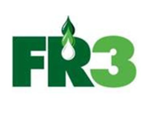Article
Russia's strict requirements for XYZ, abbreviation and acronym trademarks
6
This article was originally published in IAM Media.
Internationally famous brands that consist of simple combinations of letters, referred to as XYZ marks, (eg, IBM, WWF, BBC and CNN) are familiar to the general public. In some cases, these types of letter combination can be registered in Russia even though the process for successfully doing so can be an uphill battle.
The legal and regulatory framework
The most common reason for denying a trademark application for an XYZ mark is because it is considered to lack distinctiveness. According to the Russian Civil Code and Trademark Regulations, the registration of the following types of marks is prohibited:
- letters and their combinations that have no verbal character and/or graphic representation;
- numbers and their combinations with no graphic elements;
- lines and simple geometric figures;
- images of goods (realistic or schematic);
- common names and generally accepted symbols and terms;
- marks that characterise goods (eg, indicate their kind, quality, quantity, properties, purpose, value or the time, place and method of their manufacture or sale); and
- the form of goods that is defined exclusively or mainly by the items' properties or intended purpose.
Generally speaking, these types of element can be included within a trademark but as non-protected elements only and provided that these elements do not dominate the mark when taken as a whole.
Under Russian law, trademarks, apparently devoid of any distinctive character, may still be registered if:
- they represent a catchy, distinctive combination; or
- they have acquired distinctiveness in Russia before the priority date.
Examples
The Russia Patent and Trademark Office (Rospatent) has historically demonstrated a strict (some would say overly so), approach in its assessment of distinctiveness. However, in recent years it has permitted the registration of some XYZ trademarks, even without preliminary refusals and requests for documents supporting acquired distinctiveness. For example, the trademark shown below was registered with relative ease for use in the bio-industry.

However, the pendulum has swung back and stricter standards have returned. Now both Rospatent and the IP Court are scrupulously assessing the inherent and acquired distinctiveness of these kinds of mark.
The reason given for Rospatent's adoption of such a strict policy, with the backing of the IP Court, is to ensure that average consumers actually associate an otherwise non-distinctive designation with a specific manufacturer and/or service provider.
For example, in February 2020, the IP Court affirmed Rospatent's refusal to register the mark below.

The applicant had claimed that the applied-for mark had an original graphic representation and a verbal character. ZXR is an abbreviation representing the first letters of the company's name. The applicant argued that the applied-for mark had acquired distinctiveness since it had been actively used in Russia prior to the filing date. However, the court held that:
- while the abbreviation does have a verbal character and may be distinctive, there is no evidence that the average consumer perceives this mark as an abbreviation;
- the graphic representation of the mark is not distinctive enough; and
- the documents intended to demonstrate acquired distinctiveness confirmed, if anything, use by someone other than the applicant (one of the partners).
Some practical guidelines
A mere combination of letters is a popular way to try to individualise goods and services, especially if the mark represents an abbreviation of the name of a well-known organisation.
Therefore, in contemplating how best to successfully register an XYZ trademark, the following guidelines are useful:
- even if the mark (including abbreviations and acronyms, among other things) includes a graphic (ie, stylised font), it will likely lack sufficient inherent distinctiveness;
- if the proposed mark has a distinctive verbal character (ie, it consists not only of consonants, or it is the abbreviation of the organisation's name), it is necessary to show that consumers perceive it in this way. A special linguistic study and/or the results of a public opinion poll can serve as supporting evidence; and
- acquired distinctiveness should be well-documented, related to the applicant and to the period before the application's priority date and pertain to Russia. The documents must show the use of exactly the same mark as the one in the application. The types of document to support acquired distinctiveness are open and can include the following:
- contracts showing significant volumes of production and sale volumes of goods and/or services;
- documents pertaining to geography and duration of the sale volumes of goods and/or services;
- advertising campaign materials and records of advertising expenses;
- information about the extent of consumer knowledge about the mark and its owner, including the results of public opinion polls;
- information about demonstration of goods and/or services at exhibitions within Russia; and
- any other pertinent information and data.
The ability to register XYZ marks, including abbreviations and acronyms, may be challenging in Russia, but it is not impossible. The key takeaway guideline is to methodically collect all of the necessary documents and information in order to meet Rospatent's exacting regulatory requirements.
NOT LEGAL ADVICE. Information made available on this website in any form is for information purposes only. It is not, and should not be taken as, legal advice. You should not rely on, or take or fail to take any action based upon this information. Never disregard professional legal advice or delay in seeking legal advice because of something you have read on this website. Gowling WLG professionals will be pleased to discuss resolutions to specific legal concerns you may have.

